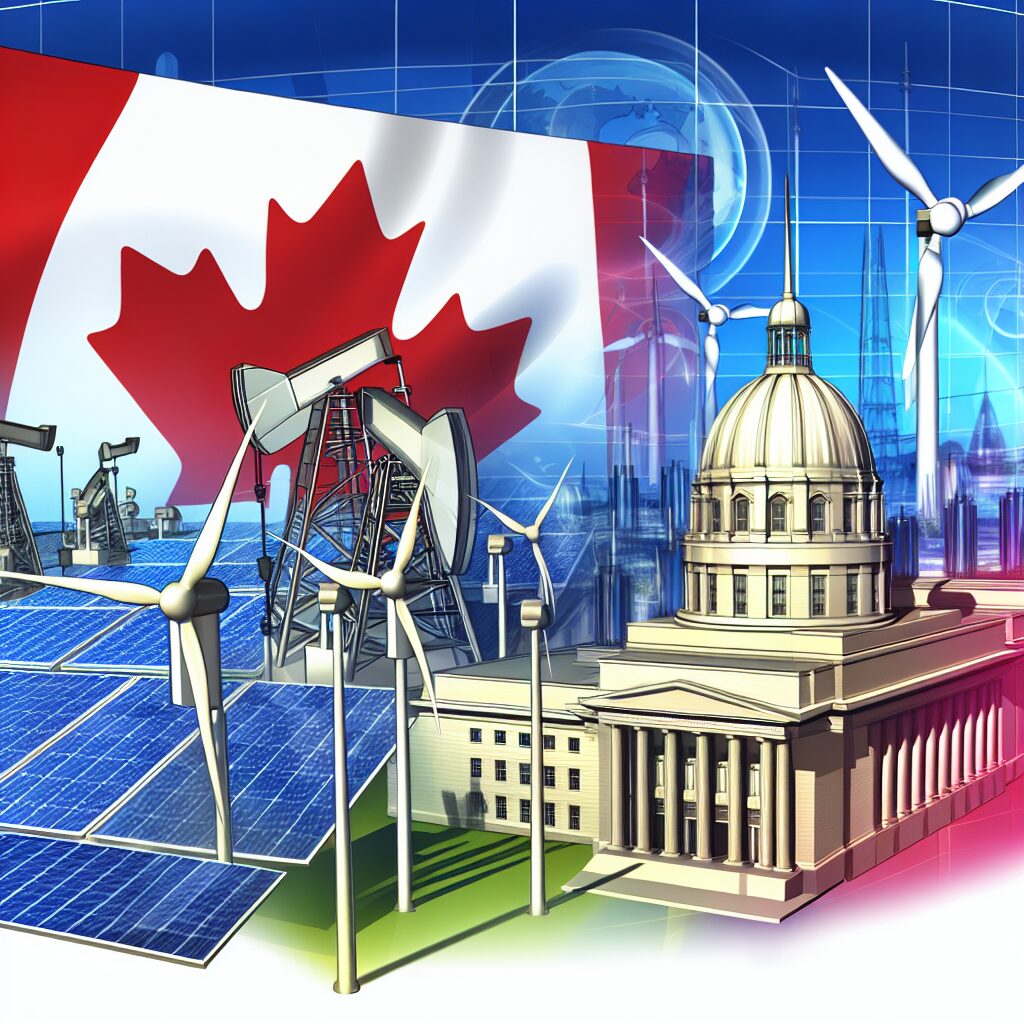The Canadian energy sector is on high alert as the U.S. election unfolds, acutely aware that the outcomes south of the border could significantly influence its future. The Canadian energy industry, encompassing oil, natural gas, and renewable energy sectors, faces a landscape poised for change depending on the direction U.S. policies take post-election. As the Canadian economy continues to rely heavily on its vast energy resources, the stakes couldn’t be higher.
Potential Policy Changes
One of the most closely watched aspects of the U.S. election is policy changes that might stem from a change in administration. The current administration’s stance has been relatively favorable towards fossil fuels, leading to various cross-border projects and trade deals that benefitted the Canadian energy sector. A shift in governance could bring new policies focused on renewable energy and more stringent environmental regulations, which may ripple into the Canadian landscape. These changes could affect everything from pipeline projects to renewable energy investments, altering the economic dynamics between the two nations.
The Keystone XL Pipeline
One of the most significant factors is the future of the Keystone XL pipeline. This enduringly contentious project, designed to transport crude oil from Alberta to refineries in the U.S., has faced opposition and legal challenges partly due to environmental concerns. A new administration might decide to halt the project, directly impacting Canada’s ability to export its oil and affecting thousands of jobs tied to its development. Conversely, support for the pipeline would lead to continued investment and growth within the sector.
Economic Ties
Energy trade between Canada and the U.S. is extensive and deeply rooted. According to statistics, the U.S. imports a substantial amount of crude oil from Canada, making it its largest supplier. Any shift in U.S. policy affecting energy trade tariffs, taxation, or environmental standards could disrupt this symbiotic relationship. For example, an increase in tariffs on Canadian energy products would make them more expensive in the U.S. market, thereby reducing demand and affecting Canada’s revenue from energy exports. Therefore, Canadian energy companies are conducting extensive scenario planning to prepare for potential policy adjustments.
Investment in Renewables
On the other hand, a new administration focusing on renewable energy could also open up fresh opportunities for Canadian companies. Canada has been increasingly investing in wind, solar, and hydroelectric power, and any U.S. move towards renewable energy could spur further investments and collaborations. New policies might include joint ventures or shared research initiatives in renewable technologies, thereby advancing the goals of both nations towards a more sustainable energy future.
Environmental Regulation
Environmental regulation is another pivotal area where changes could impact the Canadian energy sector. Stricter regulations on carbon emissions and pollution could mean that Canadian firms doing business in the U.S. will need to comply with new standards, which might increase operating costs. However, these regulations could also promote Canadian companies already pioneering in clean and sustainable energy practices. Aligning with new environmental standards could potentially provide a competitive edge against less compliant global competitors.
Market Volatility
The U.S. election itself has been a source of market volatility, and its outcome will likely continue to affect global energy prices. Canadian companies are preparing for fluctuations in oil and gas prices, which could be immediate and significant. This prompts the need for strategic flexibility and agile responses to market changes, ensuring that Canadian firms can capitalize on sudden opportunities or withstand downturns.
Conclusion
In conclusion, the Canadian energy sector is bracing for a range of possible outcomes as the U.S. election draws near. With potential policy changes on the horizon that could affect everything from pipeline development to environmental regulations and market dynamics, Canadian energy companies are keeping a keen eye on the situation. Whether these shifts bring challenges or opportunities, one thing is clear: the interwoven energy relationship between Canada and the U.S. remains a crucial aspect of both nations’ economic futures.
Source
https://calgary.ctvnews.ca/video/c2964633-canadian-energy-sector-eyeing-u-s–election

